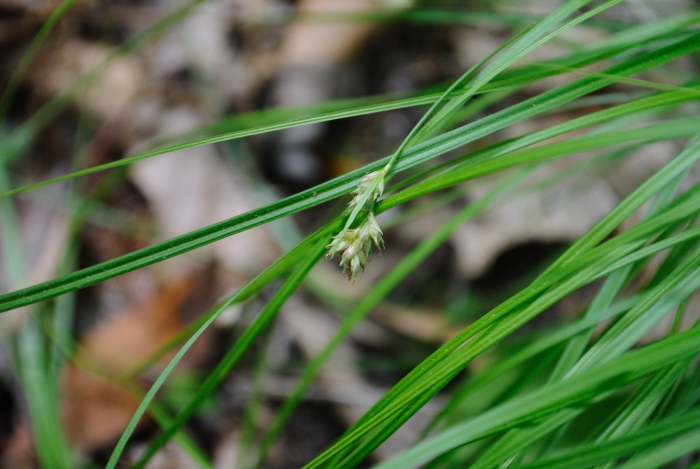Davis’ Sedge
(Carex davisii)
Davis’ Sedge (Carex davisii)
/
/

Zihao Wang
CC BY 4.0
Image By:
Zihao Wang
Recorded By:
Copyright:
CC BY 4.0
Copyright Notice:
Photo by: Zihao Wang | License Type: CC BY 4.0 | License URL: http://creativecommons.org/licenses/by/4.0/ | Rights Holder: Zihao Wang | Publisher: iNaturalist | Date Created: 2017-06-03T09:50:13-07:00 |

























Estimated Native Range
Summary
Carex davisii, commonly known as Davis’ sedge or awned graceful sedge, is a perennial herb native to mesic woodlands, rich floodplain forests, and river bottoms in eastern North America. Its range extends from Vermont west to Ontario and North Dakota, and south to Tennessee and Texas, but it is absent from the Southeast. It thrives in habitats associated with large streams and can also be found in calcareous oak savannas and meadows. Typically, it reaches up to 3 feet (0.91 meters) in height, forming loose clumps. The leaves are up to 1 foot (30 cm) long and about 0.3 inches (8 mm) wide, with the underside being slightly hairy or glabrous, particularly in western populations.
Davis’ sedge is valued for its naturalistic appearance in garden settings, offering texture and movement. It is often used in restoration projects, rain gardens, and as a component of native plantings. This sedge is adaptable to a range of light conditions, from full sun to part shade, and prefers medium water and well-drained soils. While it is not commonly available in the nursery trade, it is sought after by native plant enthusiasts and conservationists. Carex davisii faces threats from habitat destruction, invasive species, and human development. It is listed as endangered or threatened in several states due to these pressures. Gardeners should be aware of its conservation status and source plants responsibly.CC BY-SA 4.0
Davis’ sedge is valued for its naturalistic appearance in garden settings, offering texture and movement. It is often used in restoration projects, rain gardens, and as a component of native plantings. This sedge is adaptable to a range of light conditions, from full sun to part shade, and prefers medium water and well-drained soils. While it is not commonly available in the nursery trade, it is sought after by native plant enthusiasts and conservationists. Carex davisii faces threats from habitat destruction, invasive species, and human development. It is listed as endangered or threatened in several states due to these pressures. Gardeners should be aware of its conservation status and source plants responsibly.CC BY-SA 4.0
Plant Description
- Plant Type: Grass
- Height: 1-1.5 feet
- Width: 1-1.5 feet
- Growth Rate: Moderate
- Flower Color: N/A
- Flowering Season: Spring
- Leaf Retention: Semi-Deciduous
Growth Requirements
- Sun: Full Sun, Part Shade
- Water: Medium
- Drainage: Medium
Common Uses
Bird Garden, Deer Resistant, Drought Tolerant, Erosion Control, Low Maintenance, Rabbit Resistant, Water Garden
Natural Habitat
Native to mesic woodlands, rich floodplain forests, river bottoms, calcareous oak savannas, and meadows in eastern North America
Other Names
Common Names: Emmon’s White-Tinged Sedge, Davis’ Sedge, Sharp-Scale Oak Sedge, Carex D’Emmons
Scientific Names: , Carex davisii, Carex albicans var. emmonsii, Carex emmonsii, Carex nigromarginata var. minor, Carex emmonsii var. colorata, Carex emmonsii var. distincta, Carex lucorum var. emmonsii, Carex novae-angliae var. emmonsii, Carex novae-anglieae var. emmonsii
GBIF Accepted Name: Carex albicans var. emmonsii (Dewey ex Torr.) Rettig